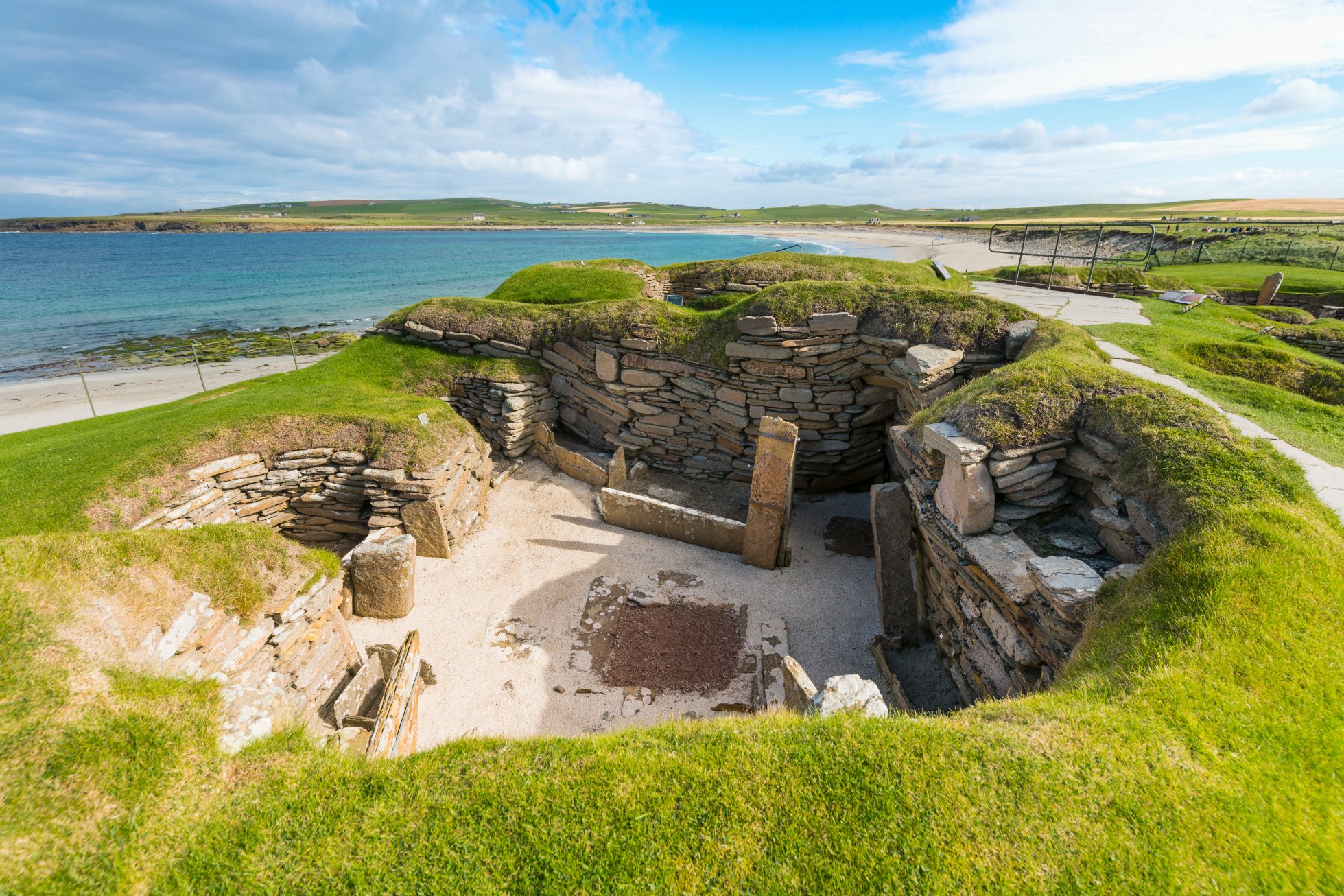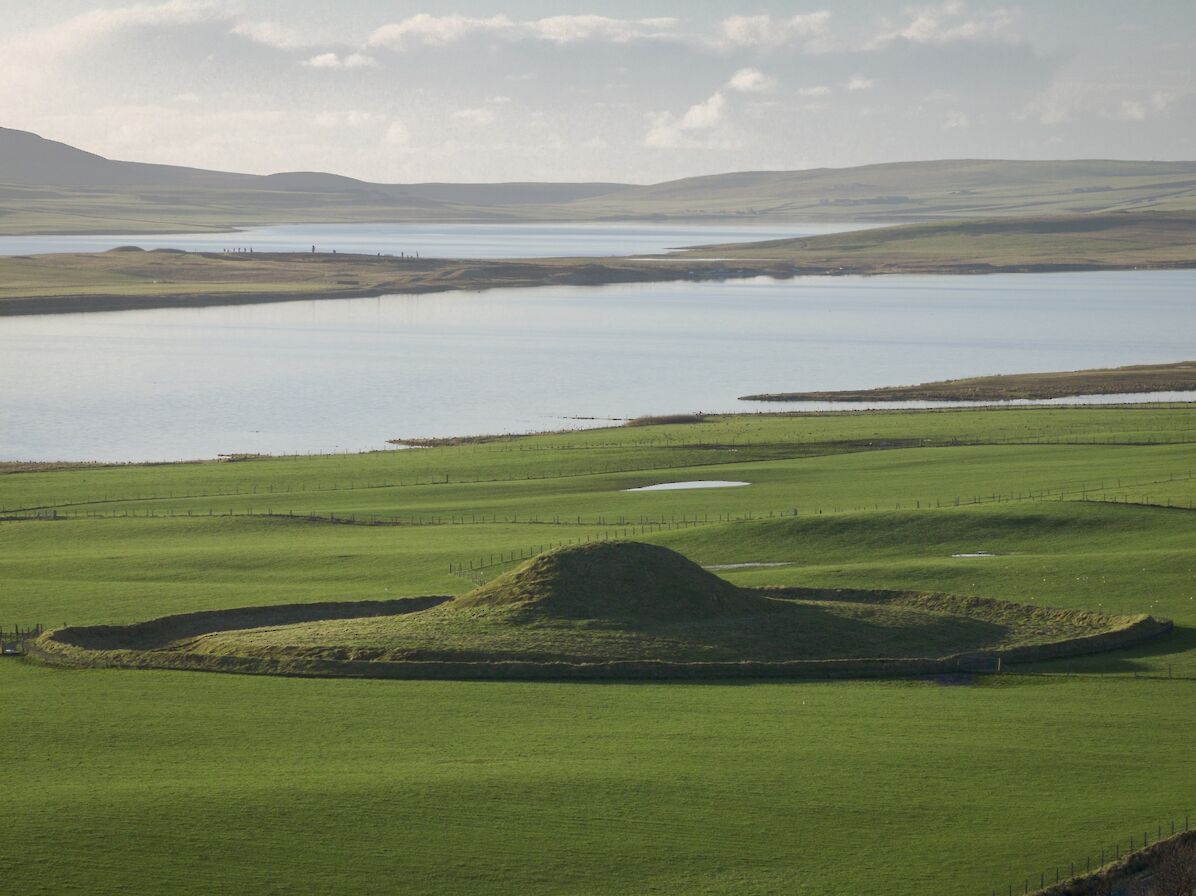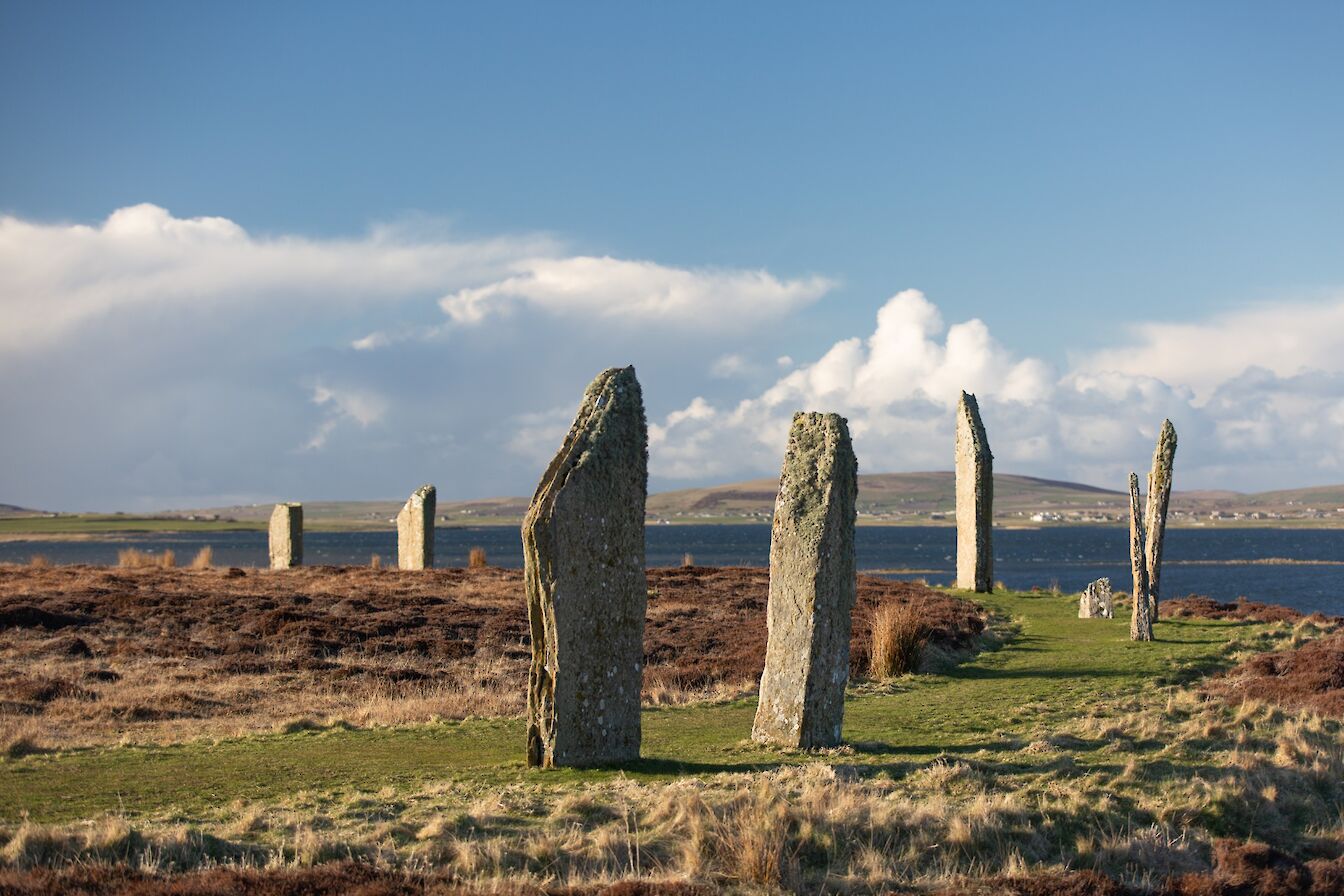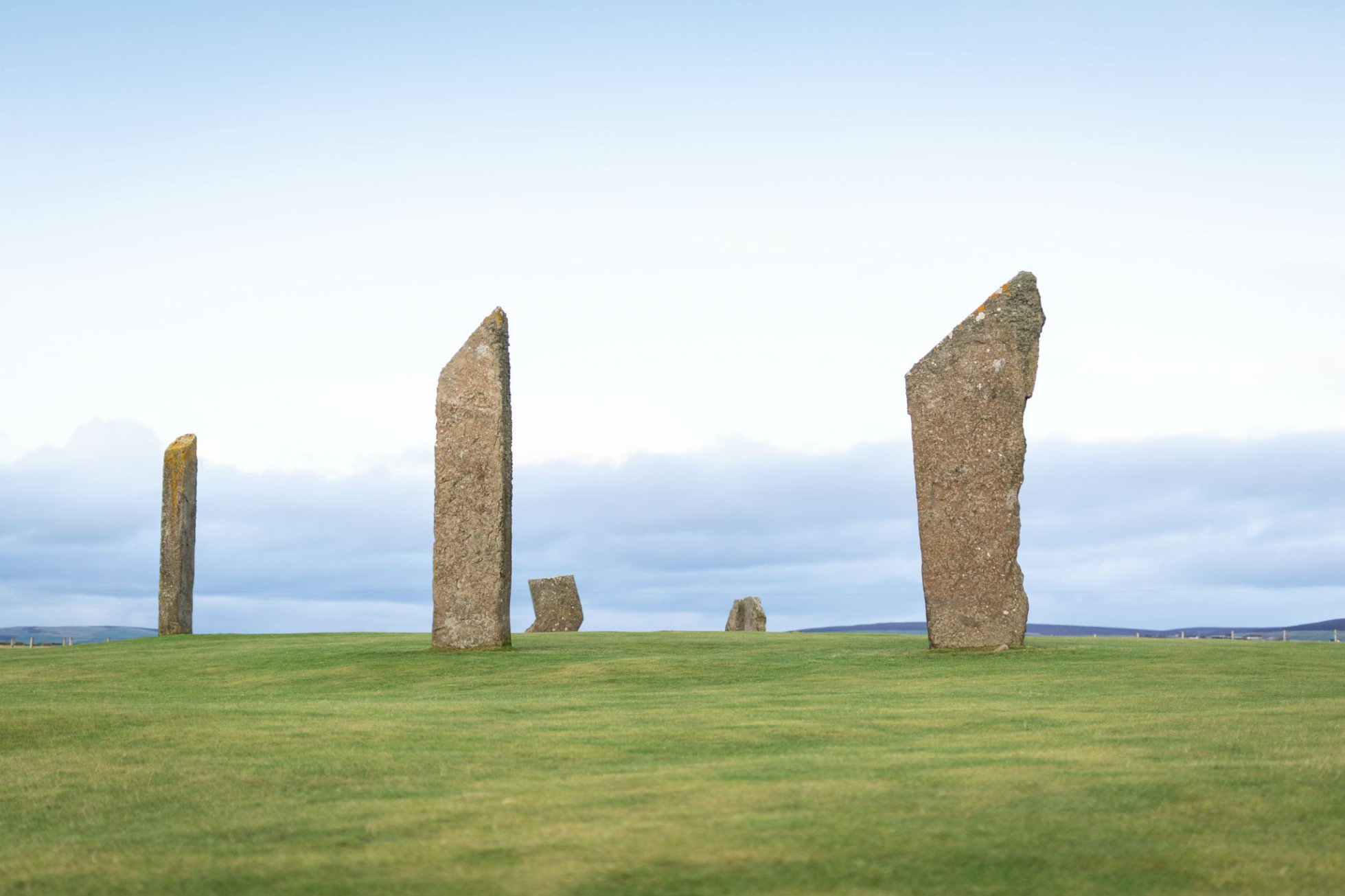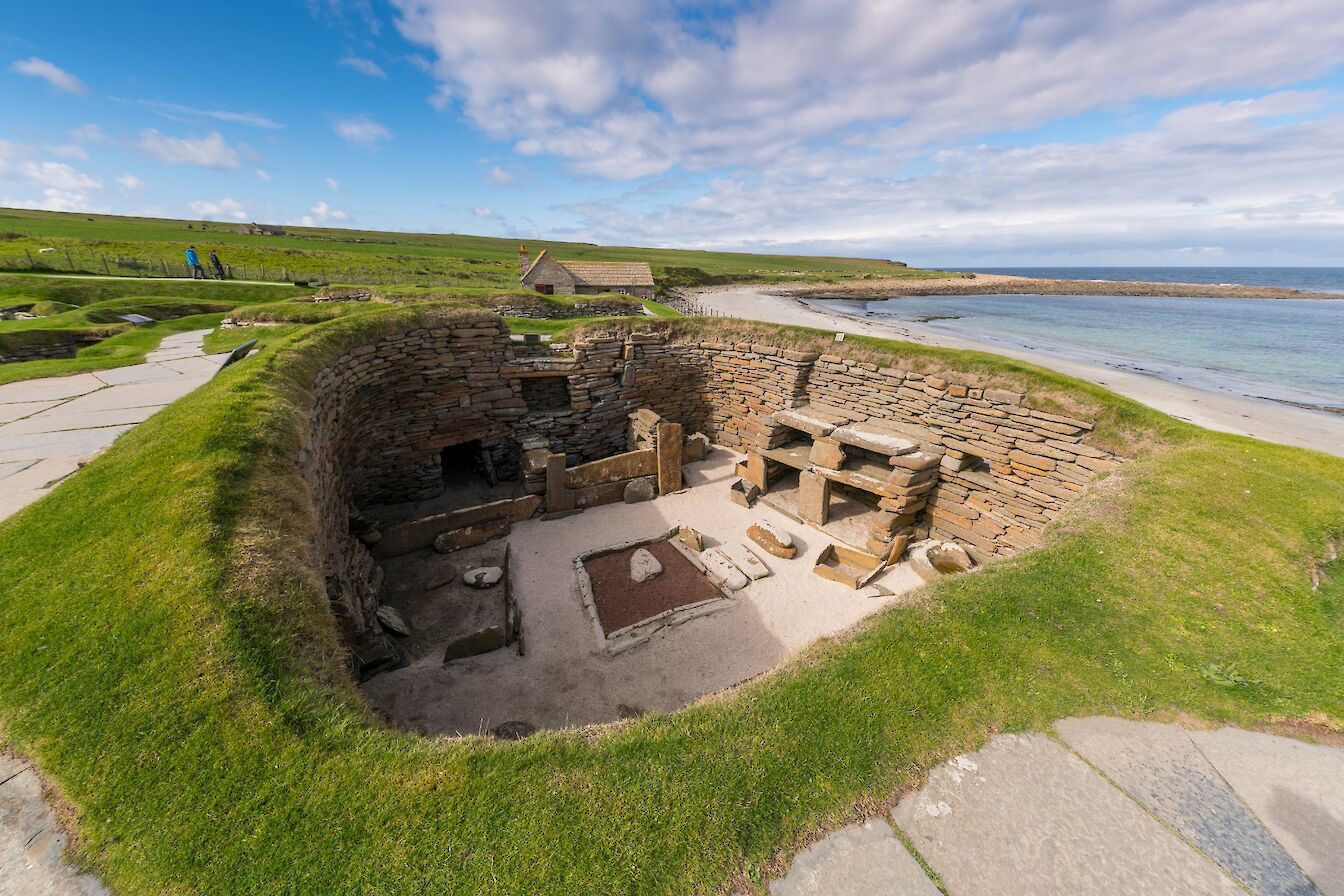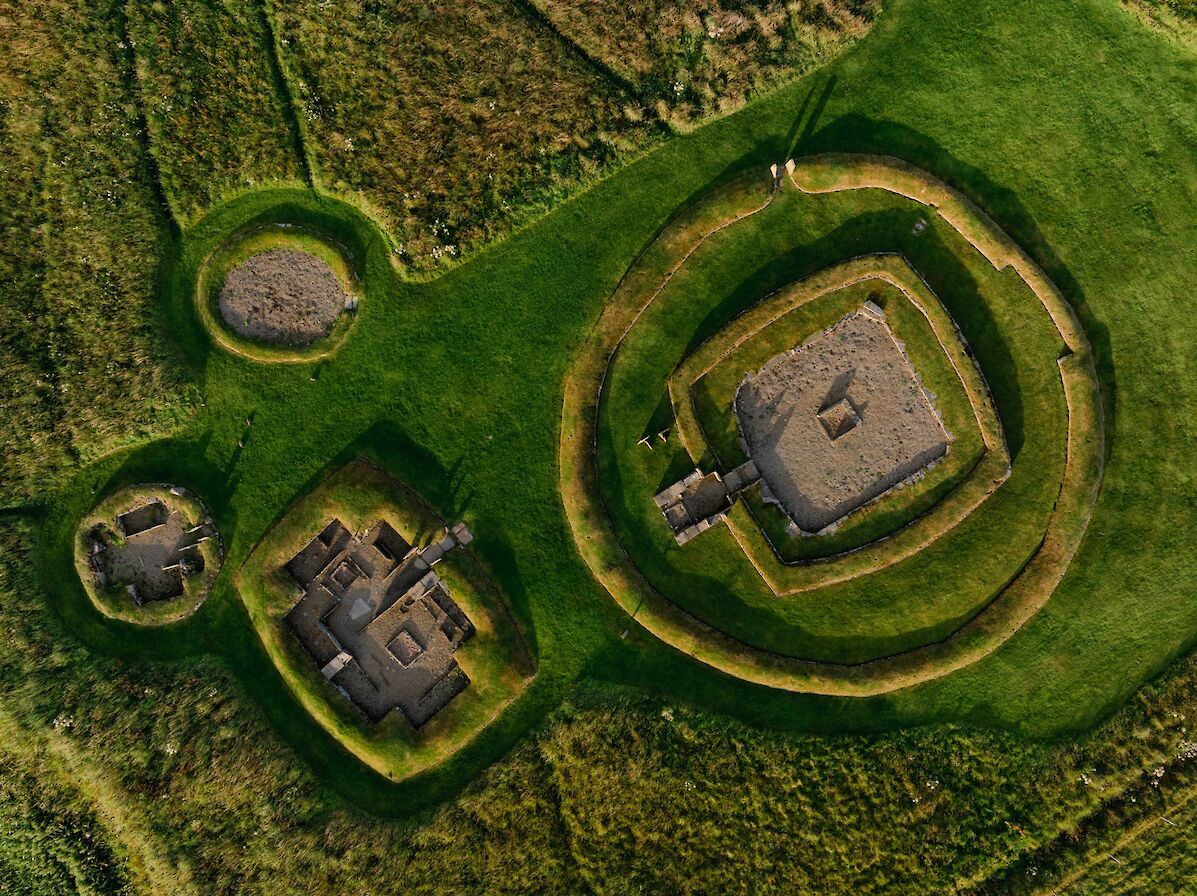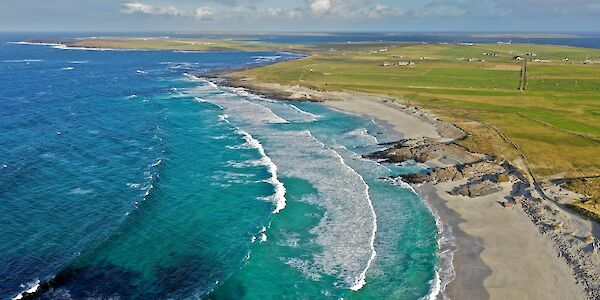Welcome to one of the world’s special places, the Heart of Neolithic Orkney, a group of Stone Age monuments forming a UNESCO World Heritage Site.
UNESCO inscribed the Heart of Neolithic Orkney in 1999 for the outstanding testimony the monuments bear to the cultural achievements of the Neolithic peoples of Northern Europe.
This trail gives you the opportunity to explore the Neolithic village of Skara Brae, the stunning chambered cairn of Maeshowe, and the twin stone circles of the Ring of Brodgar and the Standing Stones of Stenness. You’ll also see other related Stone Age sites in this ancient landscape, part of a story stretching back five thousand years.
Your trail
- 1. Standing Stones of Stenness
Arriving at the 5000 year old Standing Stones of Stenness it is hard not to be awed by the size of the four standing stones, each about 5 metres tall, which are all that remain of the twelve original stones surrounded in prehistory by a bank and ditch.
Our Neolithic ancestors quarried, transported, and erected the stones without the aid of metal tools or machinery, in order to create an open-air ritual centre in the vast natural amphitheatre in the heart of Orkney’s Mainland.
In common with the nearby Ring of Brodgar, the Standing Stones of Stenness monument is in the care of Historic Environment Scotland and there is no charge for access. World Heritage Rangers lead informative walks at both sites throughout the year.
- 2. Barnhouse Neolithic Settlement
A short walk down a track from the Standing Stones of Stenness is the Barnhouse Settlement, the Neolithic occupants of which could have been among the monument builders.
Imagine living here near the freshwater loch of Harray as the stone ring takes shape nearby. The stonework you see now at Barnhouse is reconstructed, but follows the plan of the original prehistoric settlement.
There is a bird hide nearby, from which you can watch noisy flocks of overwintering birds on the loch.
- 3. Ring of Brodgar
Originally consisting of 60 standing stones (36 of which survive today) and surrounded by a deep rock-cut ditch, the Ring of Brodgar has been described as one of the most spectacular prehistoric sites in Britain, rivalling Avebury and Stonehenge.
As you walk round the ring, just think about the scale of the effort required to create it and the strength of belief that motivated the builders.
Orkney’s Stone Age farming communities were organised and industrious enough to undertake massive construction efforts, perhaps involving people from far and wide in communal projects. You can visit this site for free, but do follow signed guidance about access to the inner path which is regularly closed to help maintain the walking surface. World Heritage Rangers lead informative walks here throughout the year.
- 4. Maeshowe Chambered Tomb
Standing just a mile away from the Ring of Brodgar is Maeshowe, one of Europe’s finest chambered tombs and a triumph of Neolithic construction ability. The low entrance passage leading to the burial chamber within is aligned so that the midwinter sunset illuminates the interior.
Perhaps Maeshowe and the other monuments in the Heart of Neolithic Orkney had astronomical purposes, helping these early farmers mark the changing seasons on which their lives depended.
Maeshowe is in the care of Historic Environment Scotland, which provides access to the atmospheric interior of the tomb on a daily basis by paid guided tour only. Tours, which must be booked well in advance, start from the Maeshowe Visitor Centre in the nearby village of Stenness.
- 5. Skara Brae
The fourth location comprising the Heart of Neolithic Orkney is Skara Brae at the scenic Bay of Skaill. Here a Neolithic village was abandoned five millennia ago.
The small houses were eventually preserved beneath the sand before being exposed by a storm in the 19th century and the village, now in the care of Historic Environment Scotland, has been described as the best-preserved Neolithic settlement in Western Europe.
It is open daily for an entry fee, and has a small visitor centre telling the story of Orkney’s Stone Age prehistory alongside a replica house which you can walk inside in order to see how our ancestors lived. Booking is recommended, especially during the busier summer months.
- 6. Stromness Museum
In Stromness, the Stromness Museum’s permanent collection includes fascinating artefacts found at Skara Brae as well as a rich collection of items spanning millennia of Orcadian history.
Other places to visit if you have more time
- The Orkney Museum in Kirkwall tells the story of Orkney from the earliest times to the present day, with an impressive collection of Neolithic artefacts and a newly-refurbished Viking and Iron Age gallery.
- Tomb of the Eagles in South Ronaldsay closed its doors during the COVID pandemic but, thanks to a community-funded campaign, this much loved Neolithic attraction is open to the public once again. Take the clifftop path to this special site where Neolithic people were buried with the talons and bones of sea eagles.
- Hop on the ferry to Hoy and head to the Dwarfie Stane, which is thought to be the only prehistoric rock-cut chambered tomb in the UK. This huge slab of rock has a small chamber inside and could date back to 3500BC.
- Rousay is an island rich in archaeology, including Neolithic sites like Midhowe Chambered Cairn, the Taversoe Tuick, and the Knowe of Yarso.
- You’ll find Neolithic sites throughout Orkney - visit our archaeology page to find out more.
